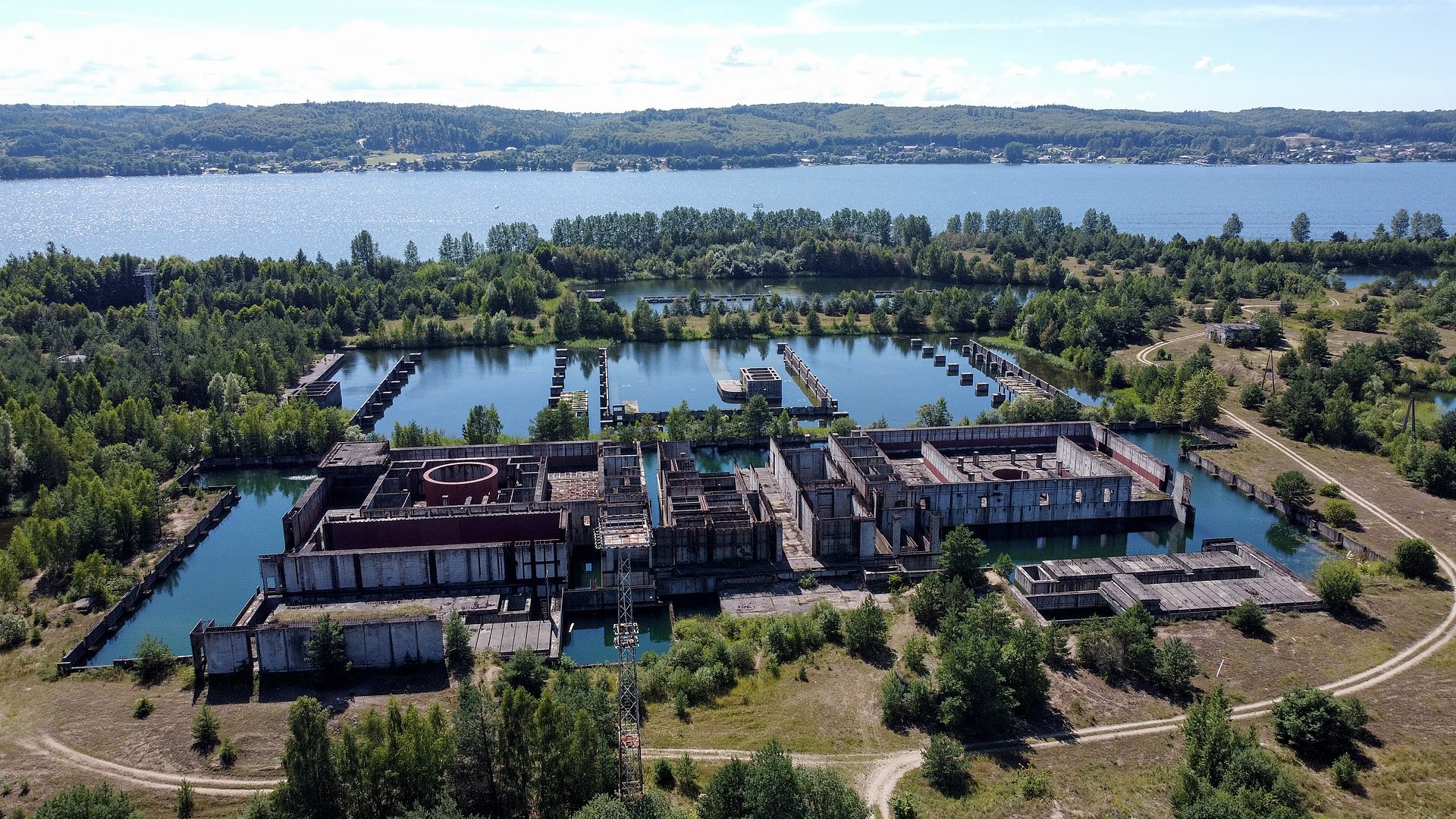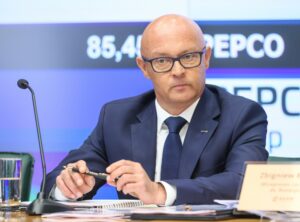The Polish government is considering using various technologies to build nuclear power plants. The French are counting on the second location after the first is in the hands of Americans, and the Koreans are fighting for the progress of the project in Konin. Whereas local governments are using disputes over nuclear power before the elections – including the legend of Żarnowiec – writes Wojciech Jakóbik, editor-in-chief at BiznesAlert.pl.
Pomeranian Voivode Beata Rudkiewicz challenged the location of the nuclear power plant in Lubiatowo-Kopalino as quoted by the Dziennik Baltycki newspaper. „The environmental decision for the location in Lubiatowo has been issued but we are still considering whether it is right. There are also different opinions about the technology chosen. The next few months will be crucial,” she said. Then she issued a statement saying she did not change that decision as it belonged to the government. Local elections in Pomerania can be interesting from the point of view of the atom and it is worth observing the affairs of some of the candidates with opponents of the construction of the nuclear power plant, like the Baltic SOS, which writes letters to Prime Minister Donald Tusk asking for a change of location.
It is worth adding that the procedure for choosing the location of a nuclear power plant is preceded by many years of research and has been completed in the case of the project in Pomerania. The project agreement between Polish Nuclear Power Plants, Bechtel and Westinghouse pertains to this particular location that needs to be prepared for the construction. Changing the location would mean delaying atom in Pomerania for at least a few years and would move the final decision on the construction, perhaps to the next term of the Polish Sejm. The nuclear dispute could play a major role in local elections scheduled for April 2024.
At stake are further negotiations with the Americans on a nuclear power plant agreement, in which the „quick audit” announced by Prime Minister Donald Tusk may be part of efforts to get better terms, especially with regard to the US share in the shareholding of Polish Nuclear Power Plants, from which American companies withdrew. The problem is that such a signal to the public encourages opponents to return to the debate on the merits of cooperation with the Americans and to reopen, it would seem, a closed chapter of the project.
In turn, the Polish Nuclear Energy Program originally wanted to benefit from the economies of scale and build two NPPs in two locations in one technology. The first location received all the decisions needed to prepare the construction within the framework of the AP1000 technology project agreement, but still the government of Mateusz Morawiecki sent signals about its readiness to talk with the French EDF about a location in central Poland, perhaps Bełchatów.
The new team is open to such talks, especially in the face of the fact that the reform of the European Union’s energy market involves the use of a differential contract to finance mega-energy projects like a nuclear power plant. Cooperation with the French may be necessary to obtain notification of the Polish financing model in Brussels, as well as obtaining financial support from the European Investment Bank, which would reduce the costs of projects estimated at PLN 100 billion apiece. This means that EDF is in the game for the second location, although the first is already lost to the Americans. The French government is reportedly committed to the nuclear finance model.
Also, the Koreans from KHNP are not giving up and are fighting to continue their project with PGE in Konin – the constituency of the current Climate Minister Paulina Hening Kloska. Delegations from Korea did not stop heading to Warsaw after the change of government. The Koreans continue to declare openness to transferring the technology to Poland despite the legal dispute with the American Westinghouse and will not be rejected by the government. However, the decisions require further work, although the first studies of the location were supposed to end at the turn of the year, according to PGE.
All this together means theoretically the continuation of the atom with the US in Pomerania, further talks with the French about a second location and no opposition to the project with the Koreans. Problems may only be caused by unexpected turns of events during local elections and protests against NPPs across various places in the country, as exemplified by the protest in Klempicz where KGHM is only considering building SMRs. There is also the possibility that someone in the government will start listening to the opponents of the atom, but then they will have against themselves more than 80 percent of Poles supporting in the polls the construction of a nuclear power plant, which cannot start despite three decades of discussion on this issue and the justified please of the National Electricity System in need of baseload.
Żarnowiec should be added to this debate, as it made an official comeback to the public debate on the same press conference described by the Dziennik Bałtycki newspaper. „The location decision concerns the most valuable tourist area of the Pomeranian Voivodeship. There is a wide sandy beach and forest complexes. Part of this heritage will be excluded from use by tourists and residents due to the impact of this investment. We realize that atom is the future and we need to invest, but isn’t it worth considering the original location from the 80s, near Żarnowiec? It already has a transmission line capable of evacuating so much energy. Building a new line – let’s not hide it – is another factor degrading the environment,” said Leszek Bonna, Deputy Marshal of the Pomeranian Voivodeship, as quoted by Dziennik Baltycki.
The proposal to build a large nuclear power plant in Żarnowiec has surprised experts, given the geographical conditions in this location do not allow the construction of three blocks of a large power plant. However, there is a grain of truth in the legend of Żarnowiec. This is a well-researched location that could be used to build small nuclear reactors, and some Polish companies with Orlen and Synthos leading the way were reportedly interested in it. However, it is worth recalling that SMRs are not an alternative to a large atom, but an opportunity for companies to obtain direct energy supplies that will be stable and zero – emission at the same time-of course, provided that one of the technologies enters the market, which is yet to happen.
The fate of the Polish atom is to be decided by the government’s plenipotentiary for strategic energy infrastructure, who will take over the supervision of the nuclear projects, sharing competence in this area with the Ministry of Climate and Environment. However, this position is yet to be manned and various ideas are thrown around behind the scenes. In these constellations, it is necessary to take into account the complementary element in the form of the Industry Ministry to be established in Katowice by March 2024. An atomic bomb that opponents of the atom may want to use would be to reverse the environmental decision, sent for reconsideration by the General Directorate of Environmental Protection.









